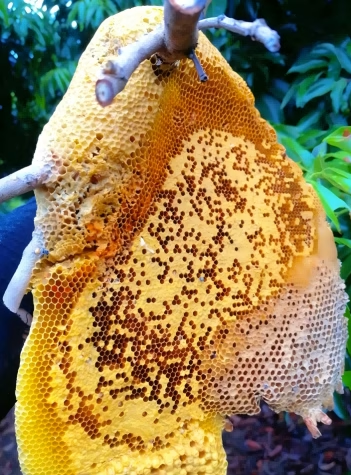Honey is a beloved daily food for many people. It’s not only used in cooking but also a premium beauty supplement. Besides traditional honey, royal jelly and propolis are also increasingly well-known bee products. However, the general public may not fully understand the differences between these three types of bee products. What are the nutritional differences?
Phytochemicals and flavonoids contribute to antioxidant and anti-inflammatory properties.
Honey
Honey is collected from nectar. Its composition tends to be composed of phytochemicals from flowers and trace minerals. Because plants cannot move on their own, they secrete phytochemicals to fight bacteria. This scent attracts animals and insects, acting as a protective mechanism.
This helps plants grow better and, when used in humans, has antioxidant and anti-inflammatory properties.
Propolis
Propolis is a gelatinous substance formed by bees from the sap, pollen, or nectar of plants. It is mixed with their own saliva and honeycomb and used to repair hives. Propolis generally contains high levels of flavonoids, which are components of phytochemicals. Numerous studies on flavonoids have found that they can aid in brain cell and cardiovascular repair, as well as anti-aging effects and even improve menopausal symptoms.
Royal jelly
Royal jelly is secreted by worker bees to nourish the queen bee and its young. It contains a unique component, royal jelly protein, which is particularly relevant to the human body. Cardiovascular disease is often caused by inflammatory factors or free radicals in the body. Current research shows that consuming royal jelly as a daily health food can scavenge free radicals and help mitigate cardiovascular disease.
Currently, no research has been conducted to determine which of honey, royal jelly, or propolis is particularly nutritious.
Flavonoids are derived from the bioflavonoids present in the body when consuming nectar or tree resin. Acting as an antioxidant, it has numerous health benefits. It can help fight viruses, carcinogens, toxins, and allergens. Over 800 flavonoids have been discovered.
Frankly, honey and royal jelly also contain flavonoids, so it’s difficult to definitively determine which has the best nutritional profile.
When choosing bee health supplements, it’s recommended to carefully review the inspection report!
Not only are flavonoids beneficial to the human body, but there are also thousands of phytochemicals alone. Studies in different countries have found that the phytochemical and flavonoid content of propolis, royal jelly, and honey varies from country to country.
Please note that many bee health supplements on the market are extracted or purified. When choosing, it is recommended to carefully check whether the product has a qualified inspection report for heavy metals and residual pesticides so that you can eat it with peace of mind.


Leave a Reply